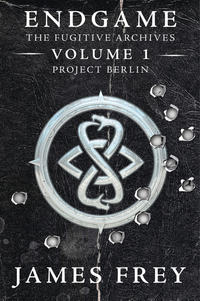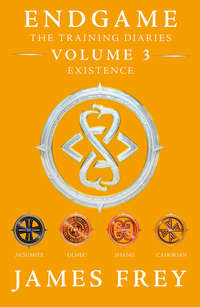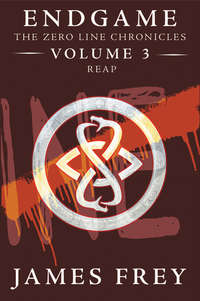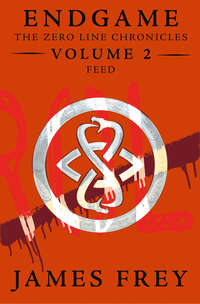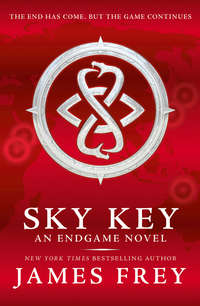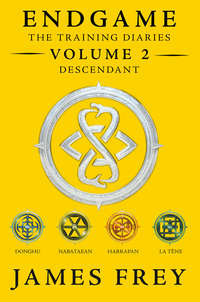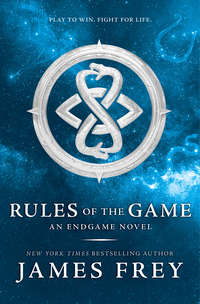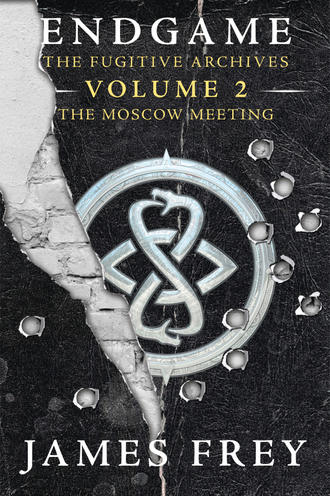
Полная версия
The Moscow Meeting
I stagger up the steps and through the halls of the museum. Outside, dawn is still some time away, and the world is gray and still. I find my way back to the car and try not to think about my brother’s body in the trunk as I get in and start the engine. I turn the heater up as high as it will go and wait for the air to warm up. When my hands are working well enough to operate the shifter, I put the car in gear and drive back to the apartment we’ve borrowed from Lottie’s acquaintance Anaïs—where, I hope, Lottie is still waiting.
She is. When I come in, stumbling, she runs over and helps me into the bathroom.
She starts the water flowing into the bathtub, then helps me take off my clothes, as my fingers still aren’t working quite right. When I’m down to just my boxer shorts, she helps me into the tub. I sink down until only my head is above the water, letting my frozen body thaw. Lottie perches on the toilet, watching me.
“I’m not going to drown,” I promise her, trying to lighten the mood.
“What happened?” she asks. “Where’s the girl?”
“We found the weapon,” I say. “Well, parts of it. And some plans.”
Her face brightens for a moment, and she opens her mouth to speak.
“But there were complications. One complication, anyway. A big one.”
I tell her everything: about Cassandra, and about my trip back down the air shaft into the flooded chamber. Her eyes widen with each new detail. When I’m done, she says, “So the weapon is lost. The Minoans have it.”
“For now,” I say.
“You’re going to go after them?”
I nod. “That’s my plan.”
“How will you even find them?” she asks. “And if you do, how will you get the weapon back? Once they have it, surely they’ll keep it protected.”
“Of course they will,” I say. “As for finding them, I have some ideas.”
Lottie shakes her head. “I hope you have a secret weapon.”
I picture Ariadne. “I think I might,” I say.
She sighs. “Are you sure you’re all right?”
“Never better.”
She stands up. “I’ll go make something to eat, then.”
She leaves, and I close my eyes. The truth is, I’m still cold. I feel like I’ll never truly be warm again. But I’m alive. The water feels great, but I know I can’t stay here long. There is a lot to be done, and with every second that passes, Ariadne and Cassandra are getting farther and farther away. I need to go after them, and soon.
There’s a knock on the door. Lottie opens it and steps inside. She’s holding a small stack of folded clothes, which she sets on a chair. “Apparently, Anaïs has a gentleman friend,” she says. “I found these in one of the dressers.” She bends to retrieve my pile of wet things. “I’ll hang these up to dry.”
I stay in the bathtub until the water begins to cool, then get out and dry myself with one of the towels. I dress in the clothes Lottie has found. They’re a little big for me, but they’re warm. When I’m dressed, I go out into the other room. Lottie is in the kitchen, stirring something in a pan on the stove.
“There were tins of soup in the cupboard,” she says as she dips a spoon into the pot.
“I’m starting to feel like Goldilocks,” I say as I take a seat at the table. “I wonder what Anaïs will think when she comes home and finds people have been sleeping in her bed, wearing the clothes in her dresser, and eating her food.”
I take a bite of the soup. It’s made with beef, hearty and thick, and I eat half the bowl before I say another word. Lottie sits down across from me and waits. I can tell she’s anxious to hear why I’ve returned alone, but she doesn’t rush me. When I’m done, I push the bowl away. “We need to talk about what happens next,” I say. “Do you and Bernard have somewhere safe to go?”
“Safe?” Lottie says. “Safe from whom?”
“Too many people know about the weapon,” I remind her. I think about Jackson’s body lying in the trunk of the car. She can’t have forgotten what happened. “If someone thinks you know anything about where it is, they might try to harm you.”
Lottie’s face hardens, and I know she’s now thinking about Jackson as well. “There are places where we will be safe,” she says stonily. “And where we can bury Jackson.”
“Where?”
She looks like she doesn’t want to tell me. “In France,” she says.
“I’ll need to know where you are,” I say. “In case I need your help.”
“What can I do?”
“I don’t know, exactly,” I admit. “Maybe nothing. But when this is over, I know my family would like to meet you and Bernard.”
Lottie shakes her head. “I don’t think they would like that at all,” she says. “They will blame me.”
I can’t tell if she really believes this or if she’s the one who doesn’t want anything to do with us. I don’t argue with her. There will be time for that later. Right now, we both need to get going. There’s one more thing I need to discuss with her first.
“What can you tell me about Karl Ott?” I ask her.
Lottie shrugs. “I’ve known him since we were children. Our fathers worked together.”
I sense that this is something else she’s reluctant to talk about. But I need information, and so I press on. “What’s his real name?”
She hesitates a moment before saying, “Tobias Falkenrath.”
“Jackson said his father was imprisoned by the Allies.”
“Yes,” Lottie says. “The Soviets.”
“Could Ott be working with someone?”
Lottie looks at me and wrinkles her brow. “What do you mean?”
“Somebody tipped off the people who came and took you from the safe house,” I say.
“It could have been any number of people,” Lottie replies tersely.
“Yes, it could,” I say. But I have my doubts. I can’t help thinking about how Ott disappeared so quickly during the fight at the factory, and how determined he was to get the weapon.
“Karl wouldn’t betray us,” Lottie says, as if the matter is settled. She stands up. “I need to get Bernard ready to leave.”
I don’t argue with her. Now that I know Ott’s real name, I can find out more about him on my own. Still, I’m not happy having his whereabouts unknown. He’s a wild card, and I’d feel better if I knew what he was up to.
While Lottie goes and wakes Bernard, I wash the dishes and put them away. When Lottie and Bernard are ready, I make one last trip through the apartment, making things look the way they did when we arrived. My clothes are still damp, and I don’t want to put them on and risk being cold again, so I’ll be borrowing Anaïs’s friend’s clothes permanently. Hopefully, she’ll just convince herself he took them, and won’t even know someone has been here. Not that it matters. Still, I’ve been trained not to leave any evidence behind, and it’s important to stay sharp.
We leave the apartment and go down to the car. Before Lottie and Bernard get in, I give them each a hug. I also give Lottie some of the cash I took from the safe house. “This should be enough to get you to France,” I tell her.
She tucks the money into the pocket of her coat, then hands me a piece of paper. “The address where we’ll be,” she says. Then she kisses me on each cheek. “Good luck, Sam.”
She gets into the car, starts it, and drives away. I watch until she reaches the end of the street and disappears. Once she’s out of sight, I turn and start walking. I’ll be leaving Berlin myself shortly. First, though, I need to make a call.
CHAPTER 3
Ariadne
The waters of the Aegean are choppy, as they often are in winter, and the caïque rocks a little as we make the crossing from Piraeus to Heraklion. But after more than 48 hours cooped up in a train compartment, it’s a pleasure to be out in the open air. I only wish my homecoming were under different circumstances.
Manos Theodorakis is at the helm of the Amphitrite, and as we motor, he talks to me and Cassandra about the civil war that has been waging in Greece for the past four years.
“I think we are nearing the end,” he says. “Now that Stalin has withdrawn support from Tito, the Communists will not be able to maintain their positions. Already they are calling for Vafiadis to be replaced. It’s only a matter of time.”
Ianthe Pavlou, who is sitting at the small table in the cabin with me and Cassandra, takes one of the pieces of the weapon from the box that sits open in front of her, and inspects it. “If the rest of the country had fought the way Cretans did against the Germans, the war would have ended much sooner.”
Ianthe is talking about the Battle of Crete, which occurred in the summer of 1941, when the Nazis sent paratroopers to invade the island in an attempt to secure it as a seaport. They were met with fierce resistance from the local population—most of whom are of the Minoan line—who defended their ancestral home and defeated the invaders. Cassandra and I were only 10, but we had already been training for several years, and we assisted the older fighters by acting as scouts and relaying information back and forth. Ianthe, who is older than we are by 15 years, killed a dozen soldiers herself, and has a thick scar running down the left side of her face as a reminder.
She sets the piece in her hand back in the box and stands up. “I need a break,” she says. “Ari, want to come outside for a smoke?”
I can tell that she wants to talk to me alone. I nod and follow her out of the cabin and onto the deck. Ianthe leans against the rail that runs along the side of the boat. She takes a pack of cigarettes from her pocket and taps one out. She offers it to me, but I shake my head. She puts the pack away, places the cigarette in her mouth, and cups her hand around it as she strikes a match and touches it to the tip. When it takes, she tosses the match into the sea and blows out a cloud of smoke.
Even though it’s winter, the temperature is warm and the skies are blue. The change from Berlin is remarkable. I realize how much I’ve missed Greece after more than half a year away. I look out over the seemingly endless expanse of the sea. We’ve been motoring for only a few hours, so Crete is not yet visible, but I search the horizon for its familiar hills anyway. At the bow, dolphins break the surface, swimming alongside us, and it feels as if they’ve come to escort me home.
I should be elated. The weapon is in our hands, and it could change everything about how Endgame is played. But the worry that began when I first saw my sister in the museum has slowly grown into a feeling of dread. During the train trip, Cassandra acted as if everything was fine, catching me up on the news from home. Never once did she ask about Boone, or for details about what occurred in Berlin. Rather than being comforting, this lack of questioning has only made me more wary. It’s as if she is trying too hard to make me feel at ease, which has had the opposite result. Equally distressing is that when I asked her why and how the council had decided to send her to assist me, she said only that she didn’t know their reasons, and that I would have to ask them myself.
“How was the journey from Berlin?” Ianthe asks.
“Uneventful,” I tell her.
She laughs. “You mean boring,” she says. “I imagine it was, after everything.”
She’s watching me. She knows something. I wonder how much. I decide I might as well find out. “What have you heard?”
She takes a drag on her cigarette before replying. “Four dead,” she says.
I nod. What is there to say to this? Again I wonder how everyone knows what happened, when I’ve made no report myself. But I don’t want to appear anxious, and so I say, “I hope what’s in that box is worth it. Can you tell anything?”
Ianthe is a scientist, like Sauer. Her specialty is ancient civilizations. She shakes her head. “No,” she admits. “But there are items in our collection that might be of some assistance. Things we’ve found over the years. We’ll see.”
She’s being evasive. I can tell by the way she turns away from me and pretends to be looking at something in the water. I don’t know if she really doesn’t know anything, or if for some reason she doesn’t trust me enough to tell me what she thinks. I stand beside her and look at the water too. It flashes in the sunlight, and the smell of salt and fish tangs the air around us.
“There’s going to be an inquiry,” Ianthe says, her voice almost a whisper. She doesn’t look at me. “I thought you should know.”
So that’s it. Now I know why Cassandra was sent to Berlin. Someone thinks I’ve done something wrong, made mistakes. That I’ve failed as the Player. I’m not surprised. It’s what I’ve been most afraid of. Having it confirmed doesn’t make me feel better, but at least now I know what’s waiting for me when we reach the island.
There’s no point in asking Ianthe any questions. She’s most likely told me everything she knows. She’s not part of the council, and therefore not privy to their discussions. Probably she’s heard the rumor from someone else. She’s only told me now because of our friendship.
Now she turns to me and smiles. “I wouldn’t worry,” she says. “It’s routine when there are deaths.”
I nod. She’s right. However, the knot in my chest isn’t loosening. There’s something more going on. What it is, I won’t know until I’m standing before the council. I expect that will happen shortly after our arrival in Heraklion. They will want to talk to me while the details of the past week are fresh in my mind. Not that I’m likely to forget them.
“If you two stare at that water much longer, Poseidon himself will rise up and claim you as his brides.”
I turn to see Cassandra watching us. I wonder how long she’s been there, and if she’s somehow heard any of our conversation. I don’t think so. Now she comes and joins us at the railing. She’s right beside me, our shoulders touching.
“Remember the time the trainers took us out on a boat to practice deep diving, and when we came up, the boat was gone?”
“We had to swim twenty kilometers back to land,” I say. “In the dark. When I said I couldn’t swim any farther, you told me that if I didn’t keep going, a sea monster would reach up and drag me down to eat me.”
“And it might have,” Cassandra says. “Who knows?” She laughs. “Speaking of sea monsters, I bet Theia Astraea is making kalamarakia krasata for your welcome-home dinner.”
Again, my sister’s cheerfulness is unnerving. If she knew that the council was unhappy with me, she would normally not miss the opportunity to make me feel bad about their displeasure. Acting as if this is an ordinary return from a successful mission is not normal. I catch Ianthe’s eye for a moment. The look on her face is one of pity, which worries me as much as Cassandra’s behavior.
“I’m going to sit in the bow for a while,” I say. “I’m a little tired.”
I feel Ianthe and Cassandra watching my back as I walk away. Will they talk about me? It annoys me that I’m now suspicious, that I’m letting the fact that the council is holding an inquiry bother me. It’s not unexpected, but Ianthe’s warning has made me uneasy.
When I reach the bow, I settle into a nest of fishing nets, curling up with my head resting on a buoy. I stare up at the sky, watching the clouds move slowly across the blue expanse like sheep on a hillside. The sun warms my face and makes me drowsy, and soon, despite my worries, I fall asleep.
I dream about Boone.
I’m in the flooded underground chamber. I’ve gone there to try to rescue him. It’s dark and cold, and the water is filled with debris: papers and pieces of things that were hidden behind the cabinet doors before the grenade explosion ripped them open. I swim through the room, feeling my way with my hands. I touch a body, but it’s not Boone. It’s Sauer. His dead eyes stare at me, his mouth open and his tongue swollen from the poison he took. I push away from him and turn. Boone is behind me. When I see him, I’m filled with joy.
Then I realize that he’s dead too. His body hangs in the water, his limbs limp as a marionette’s. His eyes are closed. I reach out for him, and his eyes blink open. They’re white, as if they’ve frozen. His hands grasp my wrists, the bloated fingers like manacles of ice. I fight him, but he doesn’t let go. I scream, and the air in my lungs bubbles out. I try to breathe, but there’s only water. It fills my mouth, and I choke. Boone opens his mouth, and even underwater I can hear him laugh as he watches me drown.
I’m awakened by the bumping of the caïque against a dock. For a moment I’m confused about where I am. Then I remember, and I realize that we’ve arrived. We’re on Crete. Home. I climb out of my makeshift bed, stretch to rid myself of the lingering bad feelings from my dream, and try not to think about whether what I saw was prophetic or just a nightmare. I very much hope Boone is still alive, but I can’t think about him at the moment.
I go and help Ianthe and Cassandra moor the boat, tying the bow and stern lines to the cleats anchored on the dock. Once the caïque is secured, Ianthe gathers up the box with the pieces of the weapon in it and we begin the walk to my parents’ house. When we’re halfway there, Ianthe and Manos break off to go their own ways. I hate to see the box leave my sight, but I know that it’s safe with Ianthe, and it’s one less thing I have to worry about. For the moment, anyway.
Cassandra and I don’t talk, but she hums a tune as we walk. It takes me a moment to place the song. It’s one we made up when we were children, about a girl who goes into the forest to find and kill a monster.
“You’re singing the hunting song,” I say.
“Am I?” she says. “That’s odd. I haven’t thought about that in years.”
She sounds happy, as if she’s the one coming home with a trophy. Which I suppose she is. But is it the box, or is it me?
When we reach our home, she lets me go in first. I take only a few steps inside before my mother appears and takes me in her arms, smothering my face with kisses. My father is next, and the two of them hug me so tightly I feel like an olive being pressed for its oil. When they finally let me go, my mother stands and looks me up and down.
“You’ve lost too much weight,” she declares.
“It’s because I didn’t have your moussaka and keftedes to make me fat,” I tell her.
“You’re in luck,” my father says. “She and your theia have made enough of both to feed the entire Greek army.”
I follow my mother into the kitchen, where my aunt is standing by the stove. Like me and Cassandra, my mother and her sister are twins. Astraea opens her arms and I endure the hugging and kissing all over again. As soon as she’s done greeting me, though, my aunt hands me a wooden spoon and says, “Don’t let the meatballs burn.”
It feels good to be tossed right back into normal life. Nobody asks me about Berlin. Nobody talks about Endgame. We cook while my mother and aunt bicker over the best way to season the lamb. We drink glasses of sweet white wine. It all feels familiar and welcome, and it takes me a while to realize that there really is enough food for a large group.
“Who is all this for?” I ask.
As if in answer, there’s a knock on the front door. My father disappears, and when he comes back, he’s accompanied by five people: Effie Kakos, Nemo Stathakis, Ursula Tassi, Xenia Papadaki, and Venedict Economides. Individually, they are my third-year mathematics teacher, a bookseller, one of my trainers, the great-grandmother of my best friend, and the priest at the Agios Minas Cathedral. Collectively, they are the Minoan council.
“Welcome home, Player,” Xenia Papadaki says as she embraces me and kisses me on both cheeks.
The others are more formal, shaking my hand. I notice that they greet Cassandra in a similar manner. Perhaps it is my imagination, but it seems they might be even more enthusiastic in their congratulations to her, as if she is responsible for bringing them the weapon. Or maybe, I think, they’re congratulating her on returning her wayward sister to them.
I try not to think about it too much as my father shepherds us to the table, where we sit. Cassandra and I are seated across from each other, and throughout dinner I occasionally look at her to see if she shows any indication of this being her victory celebration and not mine. Each time, she returns my look and lifts her glass of wine in salute. I have several glasses as well, and this does much to ease my tension.
The food is delicious. The conversation alternates between politics, local gossip, and the coming new year. Again, nobody asks me about my mission. We eat for several hours. Then the table is cleared and plates of bougatsa and loukoumades are brought out along with small cups of dark, rich coffee. Only then does Effie Kakos, who as the senior member of the council is sitting at the head of the table, say, “Now, Ariadne, let us talk about this Samuel Boone.”
CHAPTER 4
Boone
Like Berlin, Budapest is recovering from the war very slowly. Over a period of 50 days at the end of 1944 and the beginning of 1945, the city was virtually destroyed by fighting between the German and Soviet armies. Its buildings still lie in ruins, and its people walk through the city like ghosts haunting what I can tell was once a beautiful place. And, despite the devastation, it’s still beautiful. They’re rebuilding, and one day I want to come back and see it the way it should look, when the scars are healed.
Even now there are signs that the city and its people are coming back to life. The new year is two days away, and that always makes people hopeful. In my family, we each make a list of things we want to happen or to do in the new year. We put the list away, then take it out again on New Year’s Eve and see how much of it has been achieved. My list from last year is tucked away in a drawer of my dresser back home. My list for the current year is sitting in front of me on the table in the café where I’m sitting, waiting for the person I’ve come here to meet.
I look at what I’ve written so far.
Find Ariadne
Get the box
Learn Spanish
Finish reading Moby-Dick
The last item has been on my list every year for the past five years, ever since my father told me I should read it because it’s the greatest American novel ever written. I hate not finishing things, so I keep putting it there hoping it will give me the incentive I need to get through Melville’s doorstop of a book. But in all this time, I’ve only made it through the first 100 pages, so I suspect it will be there again in 1949. I don’t know how the guy found so much to say about whales.
As for the first two things on my list, I don’t know yet how I’m going to get them done, but I’m determined to do it. Only now, looking at my handwriting on the scrap of paper, do I realize that I’ve put finding Ariadne first. Maybe it’s coincidence. Maybe not. The longer I’m apart from her, the more worried I get that I’ll never see her again. I’ve never felt this way about anyone, and it’s making me more than a little anxious that perhaps I’m letting my emotions get in the way of what should be my primary concern—retrieving the weapon and taking it home. In order to get the box, I need to find her, so it’s all tied together. But what if it wasn’t? What if I had to choose one thing over the other? Would I look for her first, or the box?
“It’s a little late for writing your Christmas list for Santa, isn’t it?”
A man pulls out the chair across from me and sits down. I quickly pick up the piece of paper, fold it, and stick it in the pocket of my coat. “Yeah, well, I never get that BB gun I ask for anyway,” I say.
The man is older than I am, probably in his forties. He’s tall and thin, with an angular face, dark eyes, and close-cropped black hair. His name—at least the one I’ve been given—is Charles Kenney.
“Your journey here was uneventful, I assume,” Kenney says.
I know what he’s asking. He wants to know if I think I was followed. “Pretty boring,” I tell him.
“I’m sorry I couldn’t get here earlier,” he replies. “I had business to attend to elsewhere.”
It’s been three days since I contacted my line back in America via shortwave radio. Using Morse code, I let them know that I’d located the item I was searching for, but that it had been lost again. I didn’t tell them how. I said I could get it back, though. They responded by telling me to go to Budapest and meet the man who is now looking at me intently from across the table. I assume he’s Cahokian, but I’ve never heard of him, and don’t know who he is or what he does, so I wait for him to tell me.


